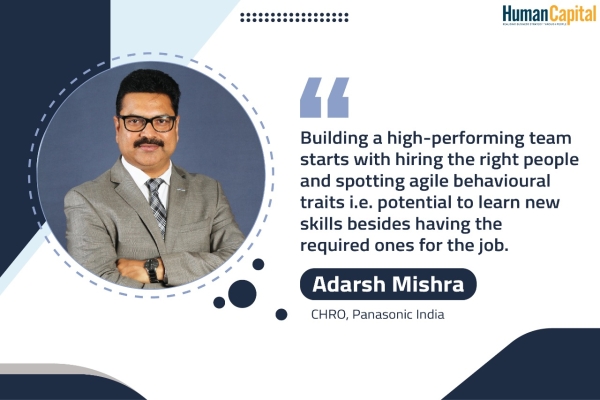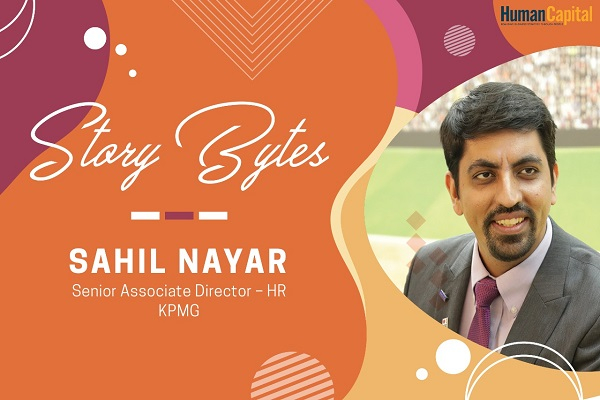With economies falling, inflation rampant, and the rate of unemployment increasing, the pandemic has not been easy for anyone.
Back in 1969, the death of a Japanese worker in the shipping department of a well-known publishing company was reported. The cause of death was said to be a stroke. No one could conclude much from an isolated incident at the time, but Japan was about to enter one of its worst-ever eras of work. Long working hours and underpayment of employees slowly became the norm as Japan's economy recovered after the Second World War. The sudden deaths of several workers, ranging from the executive level to wage-paid staff, had become such an indelible part of Japanese work culture that they coined a term for it—'Karoshi', or 'death from overwork'.
There's no denying that the work culture in Japan is demanding. However, this phenomenon is not unique to Japan. According to a Better Life Index survey, the top four countries with the longest working hours are Turkey, Mexico, Colombia, and South Korea. With people in these countries working at least 50 hours a week, the work-life balance conditions are appalling. And that is only the tip of the iceberg.
The world today has been struck with another crisis. With economies falling, inflation rampant, and the rate of unemployment increasing, the pandemic has not been easy for anyone. As businesses transformed digitally, the new wave of mass 'work from home' emerged. Welcomed with open arms, working from home opened the doors to achieving work-life balance. At first glance, it appeared to be the solution to the seemingly endless pressures and stresses caused by overwork. But is working from home truly a blessing?
Research shows that employees working remotely tend to work longer hours and spend more time in meetings. About 70% of them also claim that they work on the weekends due to the pandemic.
The newest report from WHO suggests that working over 55 hours a week is associated with a 35% increased chance of a stroke and a 17% higher risk of dying from heart disease compared to those who work for around 35–40 hours a week.
While it may seem like the crisis is in the lap of the gods, things are changing. More and more companies now realise that overly long working hours, particularly during the pandemic, might not be the best for their most valuable assets – their employees.
Take the advertising industry, for example. It was one of the first to be hit as the pandemic raged on. Employees relentlessly worked 12 hours a day and lost all sense of work-life balance. To address this, many ad firms offered paid leaves and even reduced the workweek to 4 days. One could argue that simply recognising employees' deteriorating mental health is a good place to start. Paying heed to their employees' demands, top firms like Facebook have permanently allowed people to work from home.
Despite all of this, the lack of conclusive statistics has made it difficult to truly understand the impact of the pandemic on employees' health. So the question remains: Will Covid-19 impact the 'Karoshi' culture negatively or positively?

Manasi Gadgil is a Content Specialist at Kaam.De. If not playing the guitar, you'll find her immersed in the art of photography. Deeply passionate about writing and travelling, she enjoys all things art.
Does your organisation support you in maintaining work-life boundaries?
Trending
-
SBI General Insurance Launches Digital Health Campaign
-
CredR Rolls Out 'Life Happens' Leave For Its Employees
-
Meesho Announces 30-Week Gender-Neutral Parental Leave Policy
-
Microsoft Unveils Tech Resilience Curriculum To Foster An Inclusive Future
-
60% Indian Professionals Looking For Job Change Due To COVID: Survey
-
SpringPeople And Siemens Collaborate For Digital Transformation Push
-
86% Professionals Believe Hybrid Work Is Essential For Work Life Balance: Report
-
Almost 1 In Every 3 People's Personal Life Affected Due To Work Stress
-
Meesho Rolls Out Reset And Recharge Policy For Employees
-
80% Of Talent Leaders & Academics Say Pandemic Changed Skill Needs For Youth: Report
-
Hero Electric Rolls Out 'Hero Care' Program For Employees
-
Human Capital In Collaboration With ASSOCHAM Hosts Virtual Conference
-
IKEA India, Tata STRIVE Collaborate To Create Employability And Entrepreneurship Opportunities
-
SAP India, Microsoft Launch Tech Skilling Program for Young Women
-
DXC Technology, NASSCOM Collaborate For Employability Skills Program
-
Lenskart To Hire Over 2000 Employees Across India By 2022
-
Mindtree Launches Learn-and-Earn Program
-
Tata AIA Extends 'Raksha Ka Teeka' To Its Employees
-
Swadesh Behera Is The New CPO Of Titan
-
NetConnect Global Plans To Recruit 5000 Tech Professionals In India
-
Hubhopper Plans To Hire 60% Of Indian Podcasters By 2022
-
Corporate India Needs More Women In Leadership Roles: Report
-
Aon to Invest $30 Million and Create 10,000 Apprenticeships by 2030
-
Tech Mahindra Launches ‘Gift a Career’ Initiative for Upskilling of Youth
-
40% Women Prefer Flexible Working Options in Post-COVID World: Survey
-
3 out of 4 companies believe they can effectively hire employees virtually: Report
-
Vodafone , CGI and NASSCOM Foundation launch digital skills platform
-
Odisha: Bank, postal employees to deliver cash for elderly, differently-abled persons
-
Skill India launches AI-based digital platform for "Skilled Workforce"
-
Hiring activity declines 6.73% in first quarter: Survey
-
70% startups impacted by COVID-19 pandemic
-
Bajaj Allianz Life ropes in Santanu Banerjee as CHRO
-
Over 70 Percent MSMEs look at cutting jobs to sustain businesses
-
93 Per Cent employees stressed about returning to office post-lockdown
-
Johnson & Johnson India announces family benefits for same gender partners
-
Indian firms turning friendly towards working mothers
-
Welspun India names Rajendra Mehta as new CHRO
-
Wipro partners with NASSCOM to launch Future Skills platform



Human Capital is niche media organisation for HR and Corporate. Our aim is to create an outstanding user experience for all our clients, readers, employers and employees through inspiring, industry-leading content pieces in the form of case studies, analysis, expert reports, authored articles and blogs. We cover topics such as talent acquisition, learning and development, diversity and inclusion, leadership, compensation, recruitment and many more.
Subscribe Now












































Comment